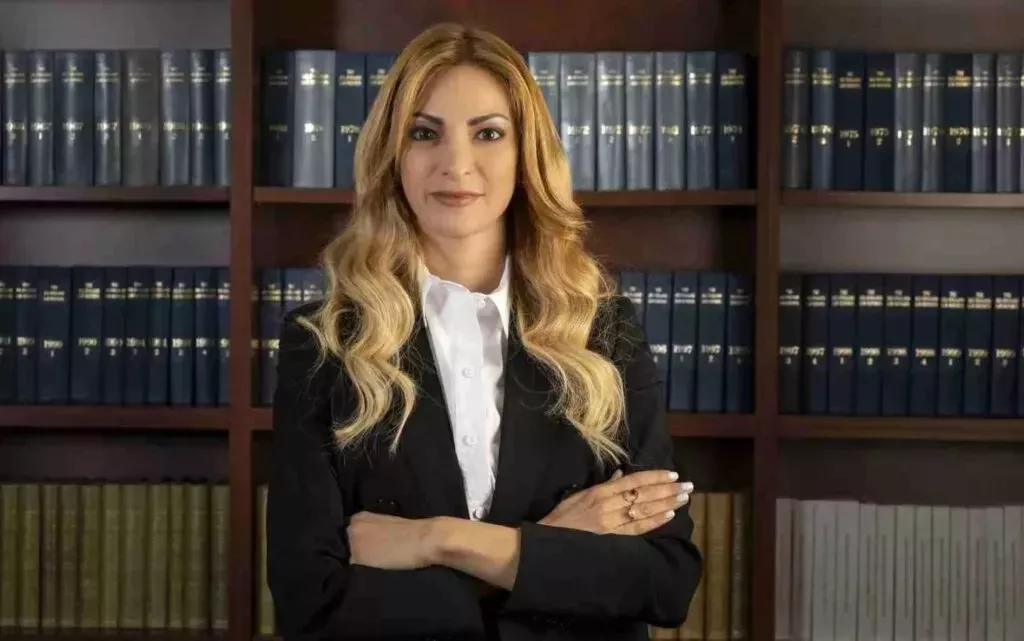Public explanations of the reasons for dismissing judge Doria Varoshiotou, who exposed claims of foul play in the long-running case of conscript Thanasis Nicolaou should be forthcoming, President Nikos Christodoulides said on Tuesday, one day after she was removed from her post.
Varoshiotou, whose name became linked with high-profile death inquiries, was dismissed on Monday by the Supreme Judicial Council, just days before marking two years on the bench.
The Judicial Council had reviewed the probation of 11 judges, appointing seven of them, allocating further probation for three and terminating one, Varoshiotou.
“I fully understand the social reaction and the feeling created in society. It is extremely important that those who took this decision, and it was not the executive power, explain publicly why they took it. I repeat, I understand the reactions from society,” Christodoulides said.
He said the government will make announcements before the end of this week on the planned reform of Cyprus’ law office.
He was responding to reporters’ questions about Varosiotou’s removal and whether the incident is linked to discussions on separating the powers of the attorney-general.
According to a report on Philenews, her dismissal follows fierce disputes with the president of the Limassol District Court over two separate inquests into accidental deaths.
The dismissal also comes against the backdrop of her involvement in the explosive inquest into the death of 26-year-old national guardsman Thanasis Nicolaou.
Varoshiotou came under intense public attention after refusing to let state pathologist Panicos Stavrianos testify in the case. In May 2024, she issued a coroner’s verdict overturning two decades of official narratives.
Meanwhile, Andriana Nicolaou, mother of Thanasis, deplored Varoshiotou’s dismissal, saying that the decision was “unacceptable”.
Andriana Nicolaou told the CyBC that Varoshiotou was “a worthy and incorruptible judge”.
“As a mother who has gone through so much, because for 20 years they tortured us, I will do everything to get justice for my child,” Andriana Nicolaou added.
For the first time, the court concluded that Nicolaou had died as a result of criminal violence, specifically strangulation, relying on testimony from doctors who examined the soldier’s hyoid bone.
Her ruling directly contradicted the Law Office, which for years maintained that the cause of Nicolaou’s death should remain “open.”
Thanasis Nicolaou was on September 29, 2005 found dead under a bridge in the village of Alassa, near Limassol. The outcome of the investigation was that he was murdered by strangulation.
One month after delivering her verdict in Nicolaou’s case, Varoshiotou was moved from criminal to civil duties – a decision some saw as retaliation, though the judiciary has not publicly commented on the reason.
Stavrianos later challenged her inquest decision at the Supreme Court. The court declined to overturn the verdict but found legal errors in how Varoshiotou had handled parts of the proceedings.
Court documents published on legal website CyLaw reveal that, on June 12, 2024, Varoshiotou clashed with the court president over the findings of two coroners’ reports – one relating to a woman killed in a traffic accident, the other concerning a man who died after falling from scaffolding.
Relatives in both cases had accepted the causes of death. Yet the president summoned Varoshiotou, urging her to amend her written conclusions and the wording of her findings. He warned that he would refuse to sign the formal letter closing the inquests unless she changed the reports.
In a memorandum the next day, Varoshiotou rejected the order. She argued that under the Constitution and the Coroners Law, no judge can be forced to alter a coroner’s verdict once issued. She sought views from the Attorney-General and the families involved.
Legal analysts say this open challenge to the court’s top official may have sealed Varoshiotou’s fate. On June 30, the Supreme Judicial Council decided she “does not meet the criteria” to continue as a judge.
Varoshiotou, who had worked as a lawyer in a large Nicosia firm, had a controversial path into the judiciary. Her first application to become a judge was rejected, despite passing the initial stages. She took the matter to the Supreme Court, which ruled there was no process to appeal such decisions. That legal battle prompted the creation of a formal procedure allowing judicial candidates to challenge the Council’s decisions in future.
She was eventually appointed as a temporary judge on July 1, 2023. However, she was never confirmed permanently in her role.
“Obviously [the latest decision] is a completely negative judgment,” lawyer Achilleas Emilianides said on Tuesday, however, he stressed that no one currently has knowledge of the specific reasoning of the Supreme Judicial Council to comment on it.
Asked if it is considered it rare for a judge not to be made permanent after a two-year probationary period, Emilianides replied that “it is not the only time,” but noted that “it is indeed extremely rare for a Judge not to be permanent.”
“It implies,” he added, “that the Supreme Judicial Council had judged based on the evidence it had before it. That is why I say that I do not know.”
“The only thing that is publicly known is obviously that the Supreme Court had negatively assessed in an appeal process its decision in the well-known case of Thanasis Nicolaou and its disagreement with the President of the Limassol District Court, regarding the way she handled two other death investigations,” he said.
The only steps left open to her are to file an objection within ten working days before the Supreme Constitutional Court, which can examine the decision of the Supreme Judicial Council.






Click here to change your cookie preferences